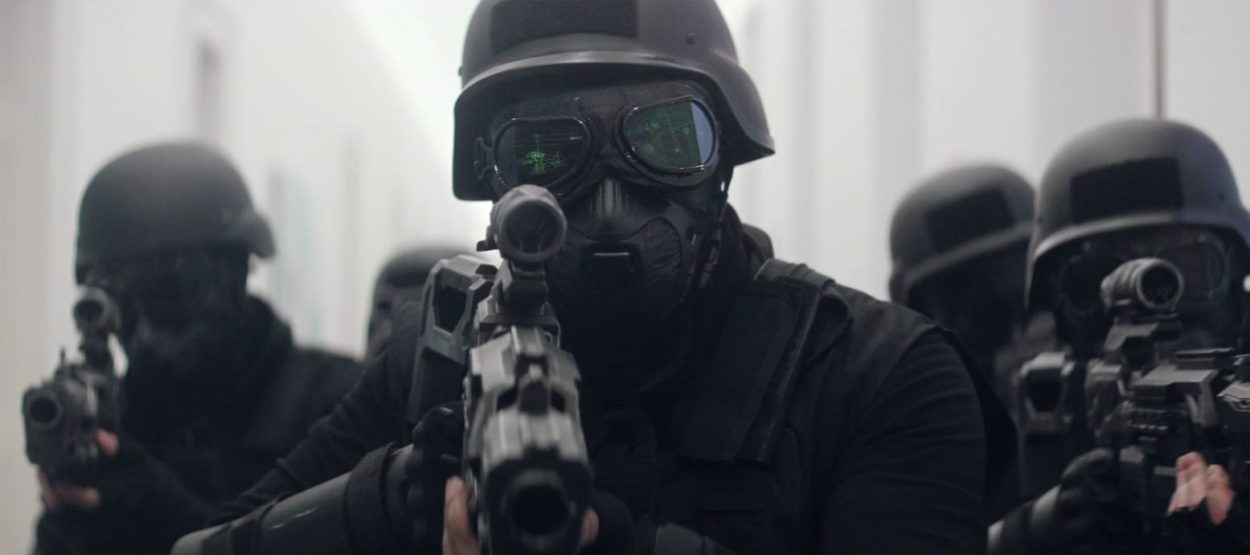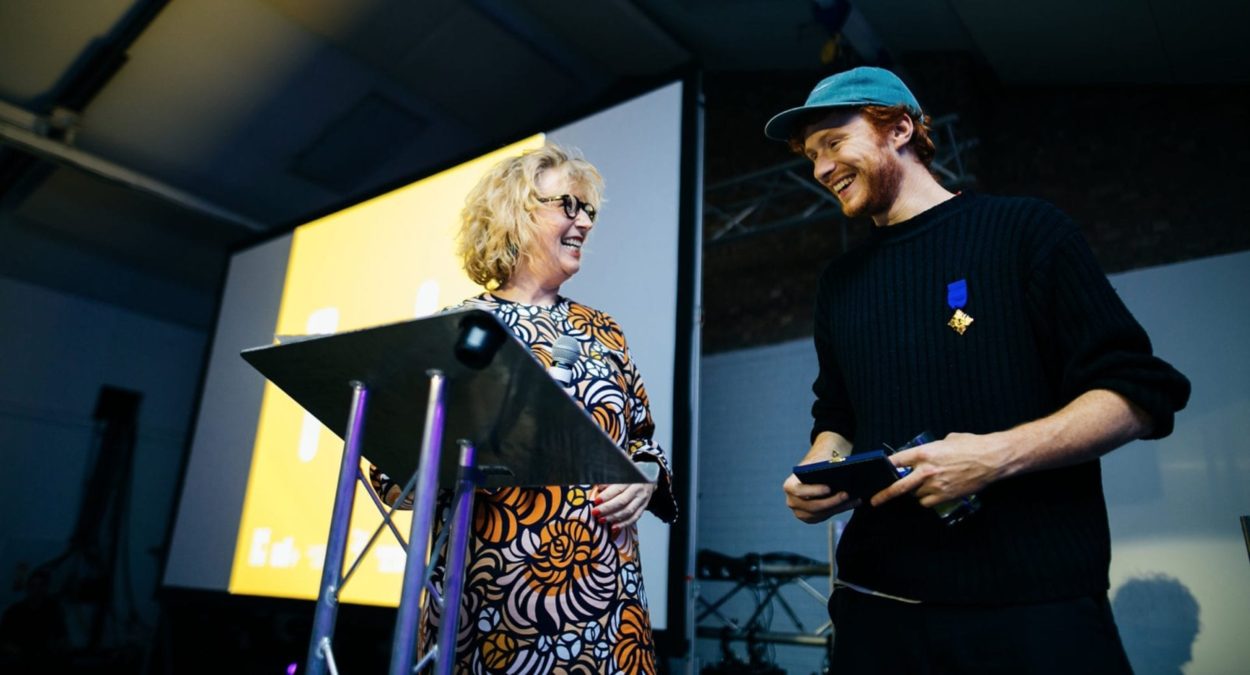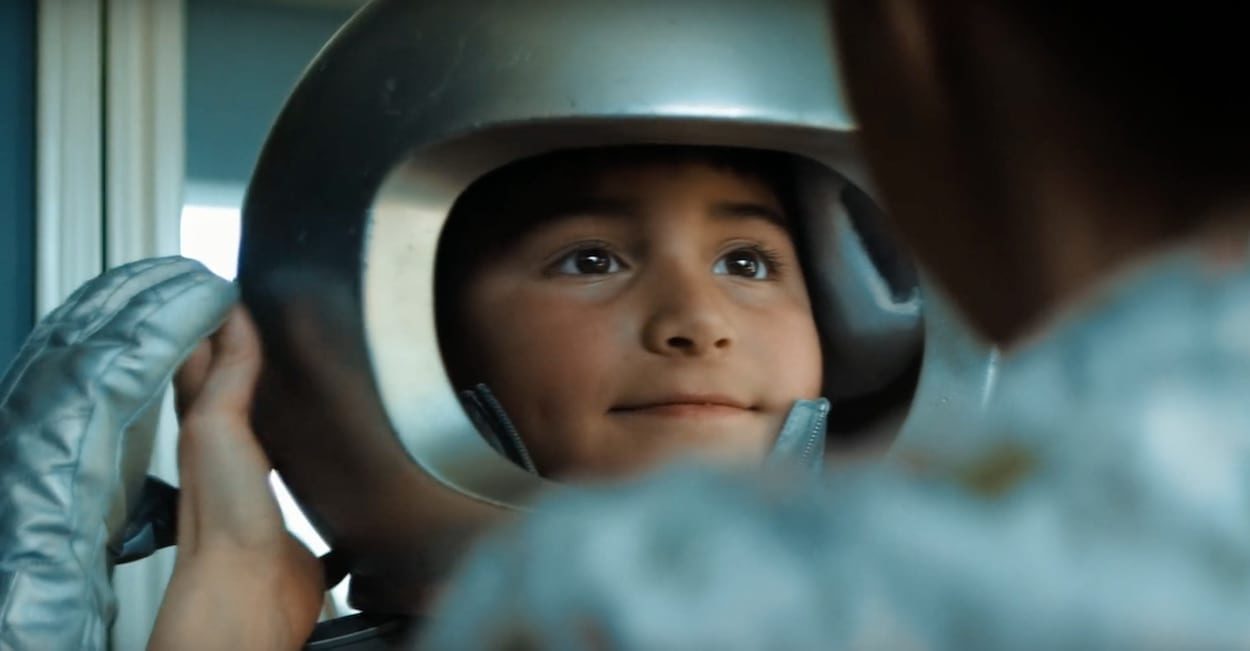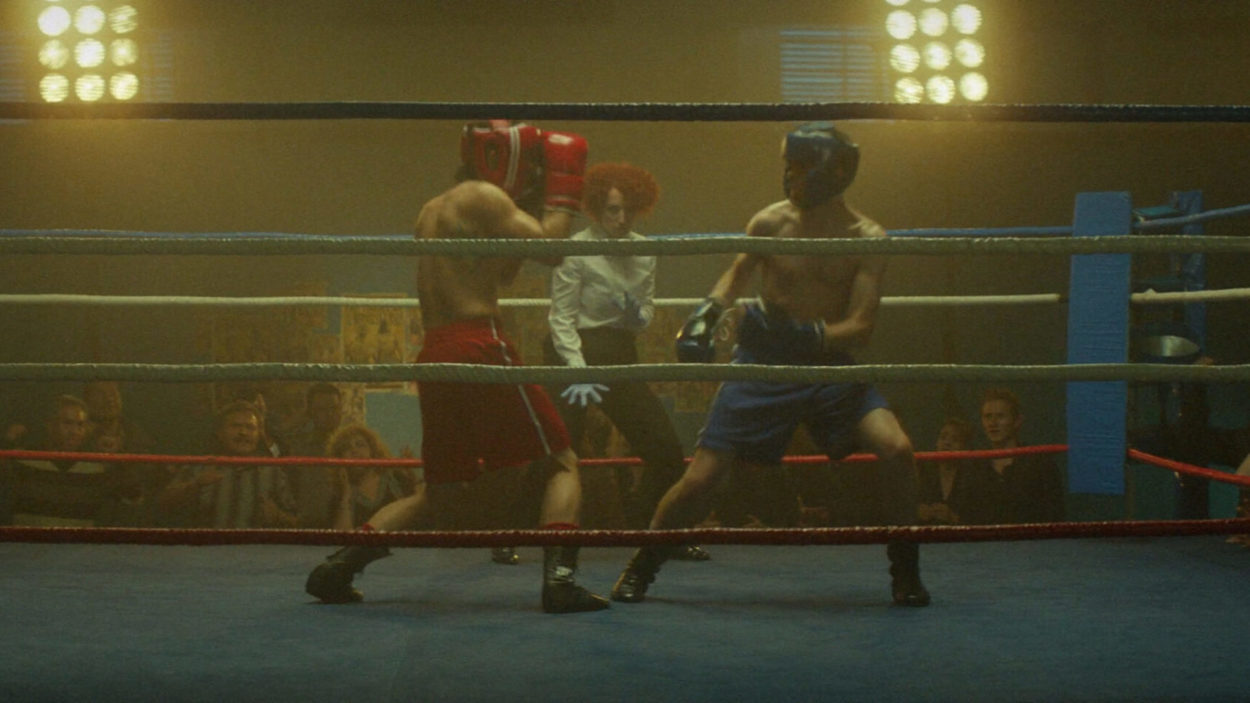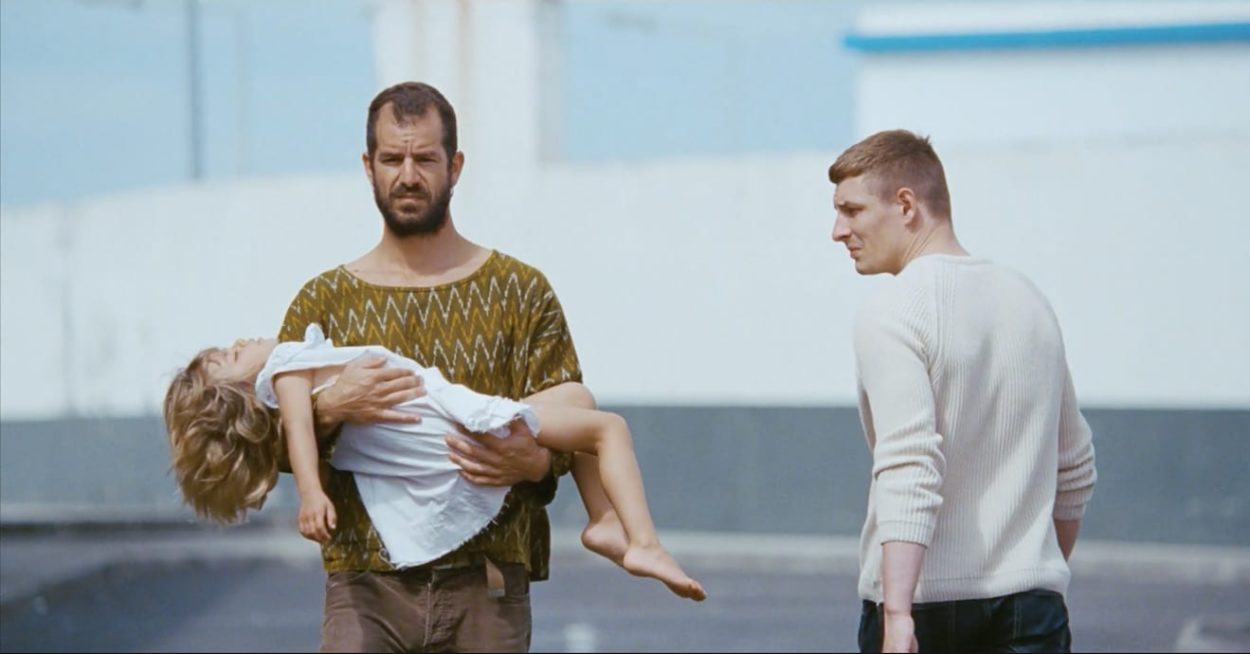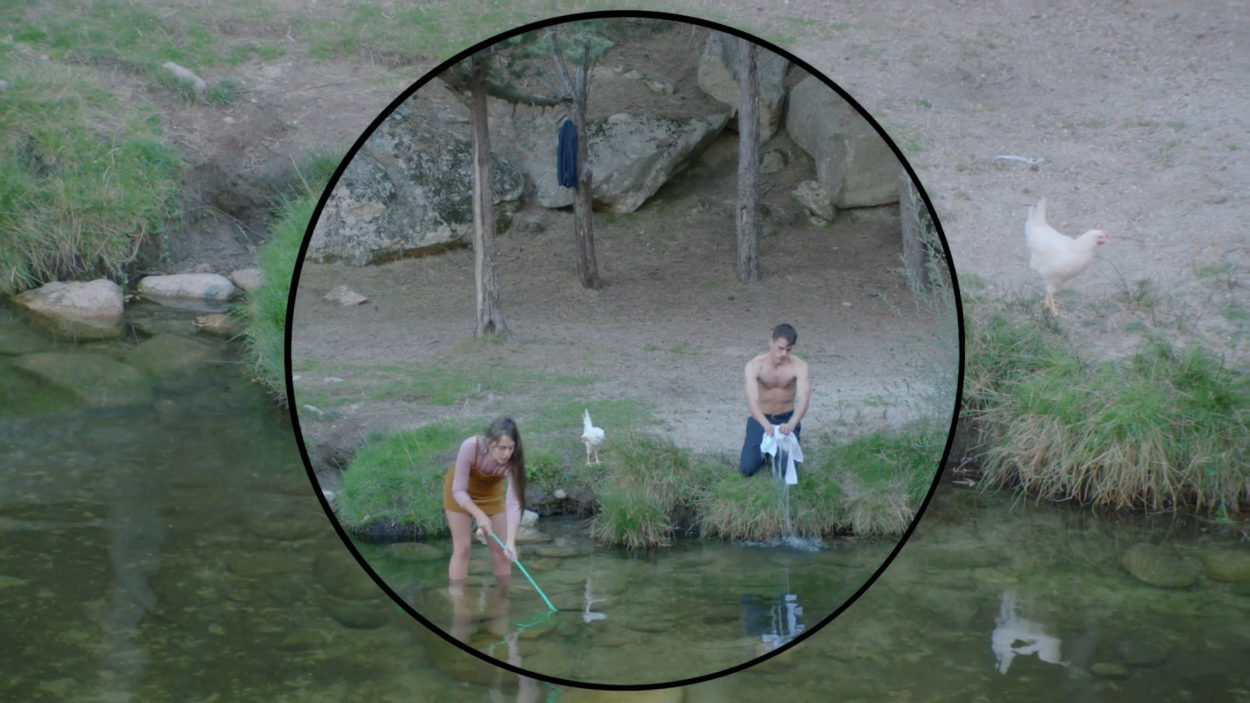From our earlier interview with you we know you’re a great fan of the classics about Life, Death and Struggle – bring on Goya and José de Ribera’s dark passionate paintings! So Brutus’s plot to assassinate Caesar is completely up your street.
What was the original brief and what drove your decisions for your interpretation of the script in terms of the clean look, symmetrical framing, and tone?
The film is part of the Shakespeare Lives project, so there will be a different film every month for a different scene from Shakespeare. What the British Council want to achieve with these films is make Shakespeare more attractive to young people.
Then they gave me absolute freedom to choose an excerpt of one of his plays and make a short film. Therefore my main goal was to make a modern film settled in a near future using a modern visual language but without changing a word of the text. I wanted to suggest that although the language of shakespeare is old fashioned the way people speak is changing all the time, so it wouldn’t really be that strange if the way we spoke evolved back to Shakespearean in the near future. I wanted to show how contemporary Shakespeare can be while above all preserving the essence of the play.
With the clean look, the symmetry and the frames (and the locations) I wanted to show that Brutus and the conspirators are really powerful people. It’s that whole idea that people in power and government begin to think that they are indestructible and deserve the power.
Was the production straight forward, what were the challenges of making the film?
The main challenge in the production of the film was shooting in those amazing locations. We were really ambitious on this issue and thanks to the help of Visit England and the effort made by the British Council we could shoot in the Foreign office and in the Treasury, both usually really expensive and difficult places to shoot. These buildings and places of power haven’t changed in the last few hundred years so I felt it was an interesting idea to set it in the near future in these old buildings to show that government and the way people are changed by power never really changes no matter how the rest of the world improves or deteriorates.
Now that the film is completed is there anything you wish you’d done differently?
It’s a difficult question, I’m quite happy with the result, maybe I would make some minor changes in the framing of some shots and things like that. Usually I need a bit more time and perspective to have these kind of thoughts unless I really don’t like the final result. But overall I think I achieved what I set out to capture in this film.
Anything else you’d like to share?
That it was a big responsibility and honour to make this film. I had to adapt Shakespeare and this was a huge challenge. I also wanted to make a film that felt very true to my work and the way I direct – in the sense I didn’t want to lose my personality as a director- but still respect the core of the play. I wanted to make a modern adaptation for young people who don’t know very much the work of Shakespeare but also an adaptation for Shakespeare’s fans . I haven’t yet got enough feedback to know if Ive achieved that goal but hope I have. Having the opportunity to make this film was amazing.
Link:
